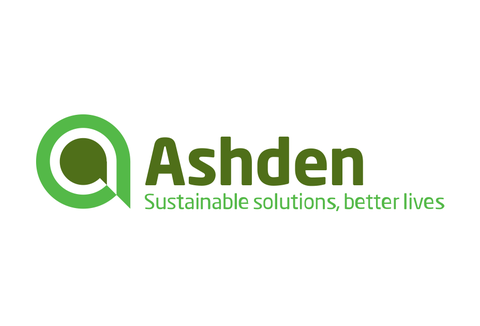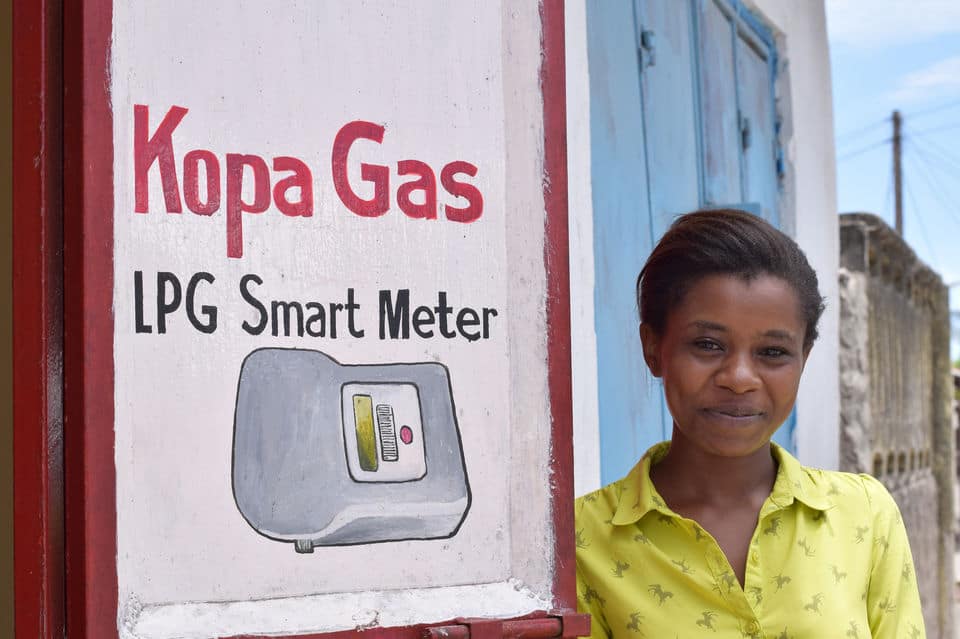We met a host of clean energy innovators, in the UK and around the world, as we hunted for this year’s Ashden Award winners. They were determined to bring clean energy to everyone – from the poorest people to those who face barriers because of their gender, disability, social status or other factors.
This was great to see, because an inclusivity is a key judging criteria for this year’s awards. We think it’s vital that as the world embraces renewable energy, no-one is left behind. It can be easier to find solutions that target wealthier customers – or to ignore women, or people in remote areas. But with smart thinking and the right support, innovators can bring clean energy to every person, family and community.
Why is this so important? One reason is that sustainable energy is a powerful tool in the battle to escape poverty. Solar-powered machinery helps adults earn a living, while solar lights help children study into the evening, and solar home systems provide phone charging and enough electricity to power TVs and fridges. When people swap cooking on open fires or polluting stoves for more efficient cooking solutions, they often find themselves with more free time as they don’t have to collect wood to burn – and fewer hospital bills as indoor air pollution is decreased.
Even in richer countries such as the UK, cold and draughty homes can keep people in fuel poverty, or force them to choose between heating and eating. Illness, poor nutrition and debt are poverty traps – but sustainable energy allows people to break the cycle.
But how do you deliver inclusive clean energy? Here are four lessons from our longlist:
Pay-as-you-go helps the poorest get connected
Around the world, people want to use modern, clean, efficient technology as they work and in their homes. This technology often brings long-term savings, among other benefits – but high up-front fees can make it unaffordable for people with little cash and no credit history. Some of our longlisted organisations are tackling this problem with clever pay-as-you-go software.


12 Sep | News
Clean energy powers healthier homes
Read more
Agsol uses the technology in its solar-powered farm equipment, sold in countries where people can spend two hours a day milling grain by hand. Farmers aren’t just saving time – they’re taking more control of processing of what they grow, which is one route to a bigger income.
In the home, cleaner cooking solutions save time, lower fuel costs and protect the health of users by limiting air pollution. Envirofit, Inyenyeri and KopaGas are three innovators using pay-as-you-go technology as part of their business.
Clean energy helps women overcome a host of challenges
As women are more likely to cook for a household, especially in developing countries, they are most at risk from the polluting stoves and open cooking fires mentioned above. They are also less likely to have financial freedom and independence, with social pressures often making it harder for them to earn money, or keep control of the money they do earn.
These are just two examples of the many restrictions faced by women around the world, which combine to create deep-rooted gender inequality. Sustainable energy can tackle many of these issues at once, making it a powerful tool that helps societies address this complex problem.
Replacing petrol-powered cars with greener options is a key sustainability challenge – but safety issues can stop women using public and shared transport. Our longlisted organisations are helping women take advantage of sustainable transport – as a way of travelling and a way of earning a living.

Safetipin is working with the city of Bogota, who are on our
2019 sustainable mobility longlist. Safetipin’s app helps women around the
world monitor and report on the safety of public spaces such as paths and bus
stops.
In India, electronic rickshaw company SMV Green has a
revolutionary project to train female drivers. The scheme includes targeted
recruitment and safety measures like rickshaw-mounted cameras that give the
drivers confidence and security. And in the London borough of Waltham Forest,
women-led cycling groups have sprung up after the council’s ambitious project
to make streets and neighbourhoods safer and friendlier for everyone.
Innovation helps tackle the UK fuel poverty crisis
In Britain, more than 3,000 people die each year because
they can’t afford to properly heat their homes, according to charity E3G. For
some people, better insulation and energy saving measures don’t just keep bills
down – they’re a lifesaver.
Social housing tenants are often on lower incomes, and the
terms of their lease means they often have to rely on landlords to make their
homes energy efficient. Our longlist includes software provider Guru Systems –
whose smart monitoring systems have made heating systems more efficient for
thousands of social housing residents. And Energiesprong UK’s radical retrofit
approach helps housing associations make dramatic and affordable upgrades to
older homes.
Clean energy brings power to cut-off communities
Isolated communities face a host of challenges, including a
lack of reliable power. For example, the vast majority of the 240 million
people in India without access to electricity live in rural areas. Longlisted
organisation Mlinda is installing village micro-grids in the country, mainly
using solar power, to get people connected. Software from Homer Energy and
Odyssey Energy Solutions helps developers and financiers manage micro-grids which bring electricity to rural
communities.
Without reliable power, even basic healthcare can be
impossible. Our longlist includes We Care Solar, who use portable ‘solar
suitcases’ containing vital equipment to deliver safer births in remote
communities – while Sure Chill’s unique refrigerators can work without constant
power, allowing them to keep vaccines cool and effective until they reach the
place they’re needed, wherever that might be.


Read more
Inclusivity “absolutely crucial”
Senior Programme Officer Ellen Dobbs said: “When it comes to
sustainable energy, inclusion isn’t a nice-to-have – it’s absolutely crucial.
There’s so much innovation taking place, but we know the wrong business models
and policies leave people locked out and left behind – often those who would
benefit most.
“With so many exciting new products and services emerging,
now is the time to make sure everyone is included.
“Innovators, funders and leaders need to really listen to
people about their needs and the specific barriers they face. If they get this
right, the results can be spectacular. Our longlist is packed with brilliant
examples of how to bring sustainable energy to everyone.”

